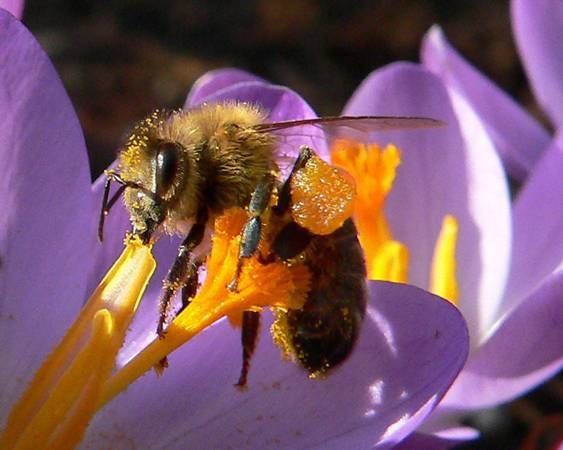The last couple of weeks our columns have been all about bees – solitary bees and then last week a bit about honey bees. Remember that bees are important pollinators for many of our plants and if we are talking honey bees, they produce the most delectable product – honey. Nothing beats a fresh piece of homemade bread toasted with butter and home-grown honey. I had mentioned bee nucs in the column and my mailbox has been inundated so people can learn more about what bee nucs are and how to get started having your own honey bees.
First and foremost, bee nucs or nucleus colonies are not a bee hive. Bee nucs are made up of overwintered colonies and are sold by experienced beekeepers. They are a great option to getting your beekeeping season off to a strong start as they, like plants, are best purchased as close to home and your local climate as possible.
Purchasing quality nucs from a similar climate will give your bees a head start as they are already excellently suited for the cold over-wintering climate in Saskatchewan. They also already contain a high quality, professionally bred queen bee, which gives a head start to the season. If you populate your hive with a package of bees, these are typically shipped in from far away and are often stressed due to the long travel they have undergone to get to you.
It is important to educate your self if you are thinking of keeping bees. You want to be successful and you of course will want to follow the regulations. For example, anyone who keeps any bees will need to register your bees with the provincial apiarist and there are strict regulations for crossing borders – even provincial borders within Canada.
Years ago it used to be much simpler as there were fewer pest and disease problems, but there are lots of resources available that will help you be successful. Take an introductory course, read and collect some quality books and check out local sources like
Orchid Horticulture has been doing some work with Grassland Honey located close to Saskatoon and in partnership with the Saskatoon Bee Club. We are putting on a presentation in the next few weeks that will be all about what to plant to attract bees and how to plant up your bee yard (the location of your bee hives) to ensure the longest possible production season. This presentation is available free of charge but will require registration so we can properly accommodate those who are interested.
Nucs come in a variety of sizes but the nucs for sale from Grassland Honey consist of a five-frame cardboard nucleus box which will contain brood, (two frames brood and bees), eggs, larva, pollen, honey and a bred queen. They are inspected by the Provincial Apriculturist and the spring treatments will be completed. The cost to purchase is $260 and a $60 deposit will confirm your order. If you are interested or have questions, please call or text 306-380-4457 or go to the website at .
As the sun warms the ground, we will see more activity by all types of bees. It is important to remember that each and every individual can contribute to the preservation of bees and other pollinators. In order for bees to be the most productive, a diverse environment is necessary. A diverse environment contains trees, shrubs, perennials and annuals so there is always cover on the ground and there is always something growing.
Hanbidge is the lead horticulturist with Orchid Horticulture. Find us at ; by email at [email protected]; on facebook @orchidhort and on instagram at #orchidhort.




